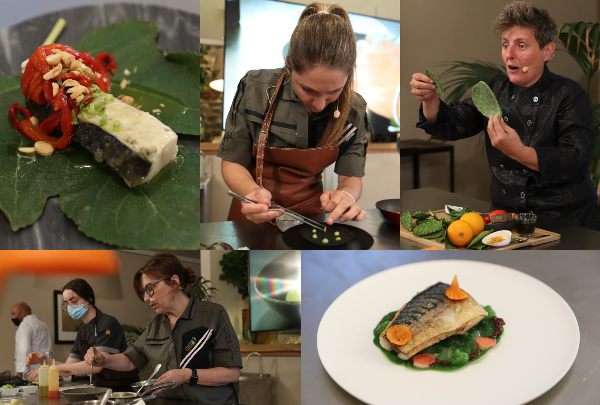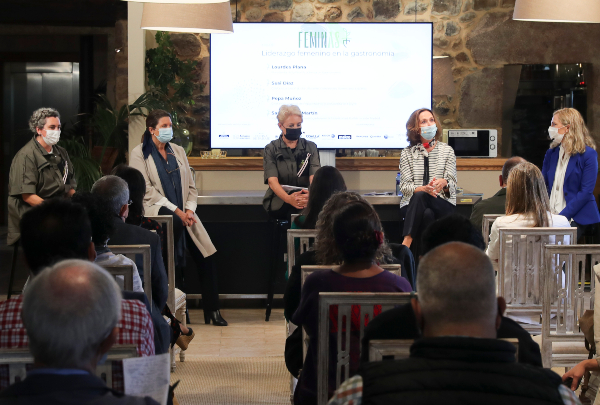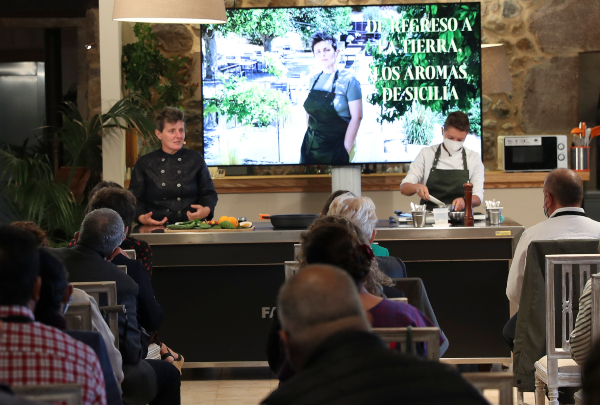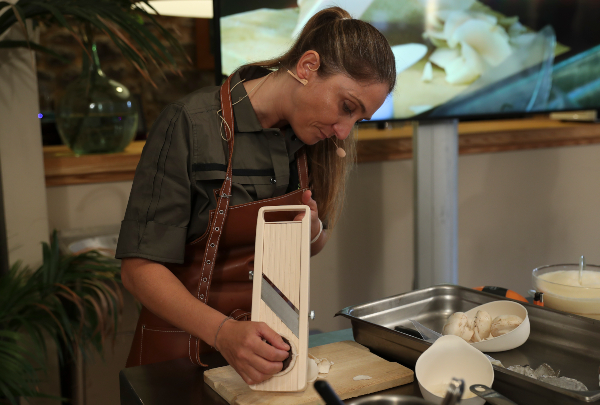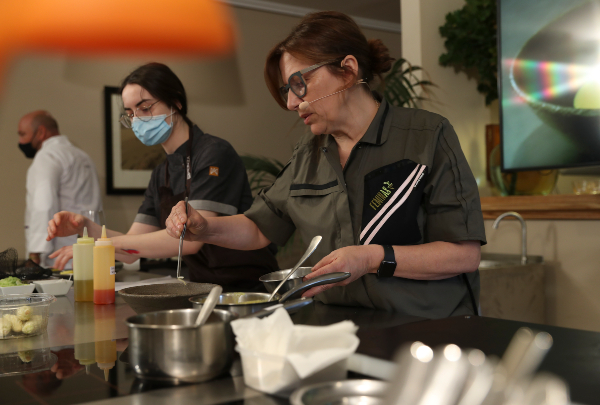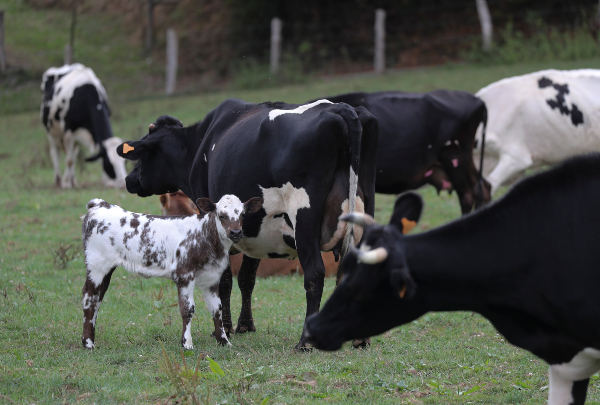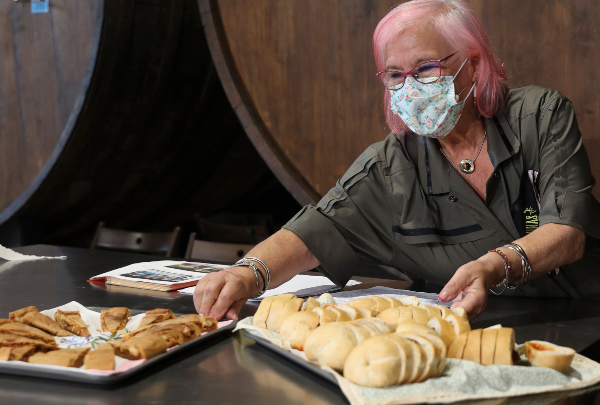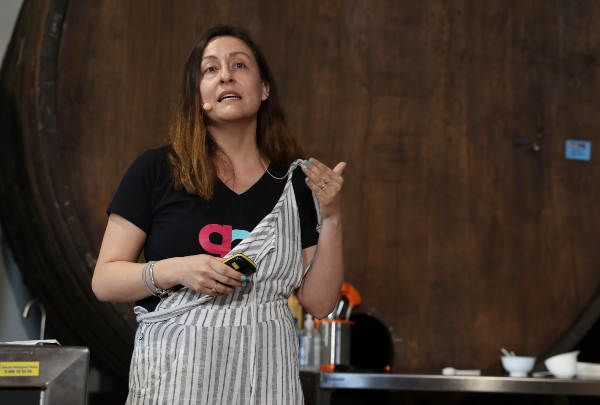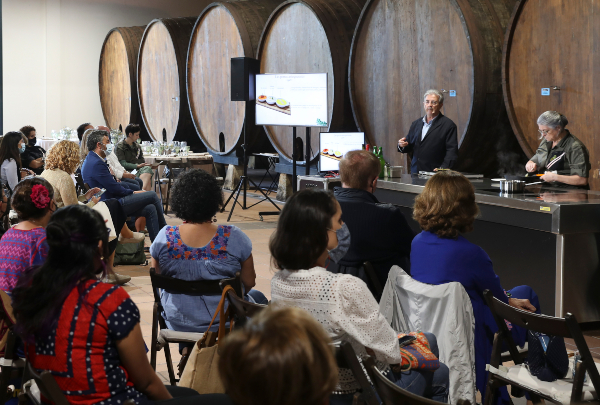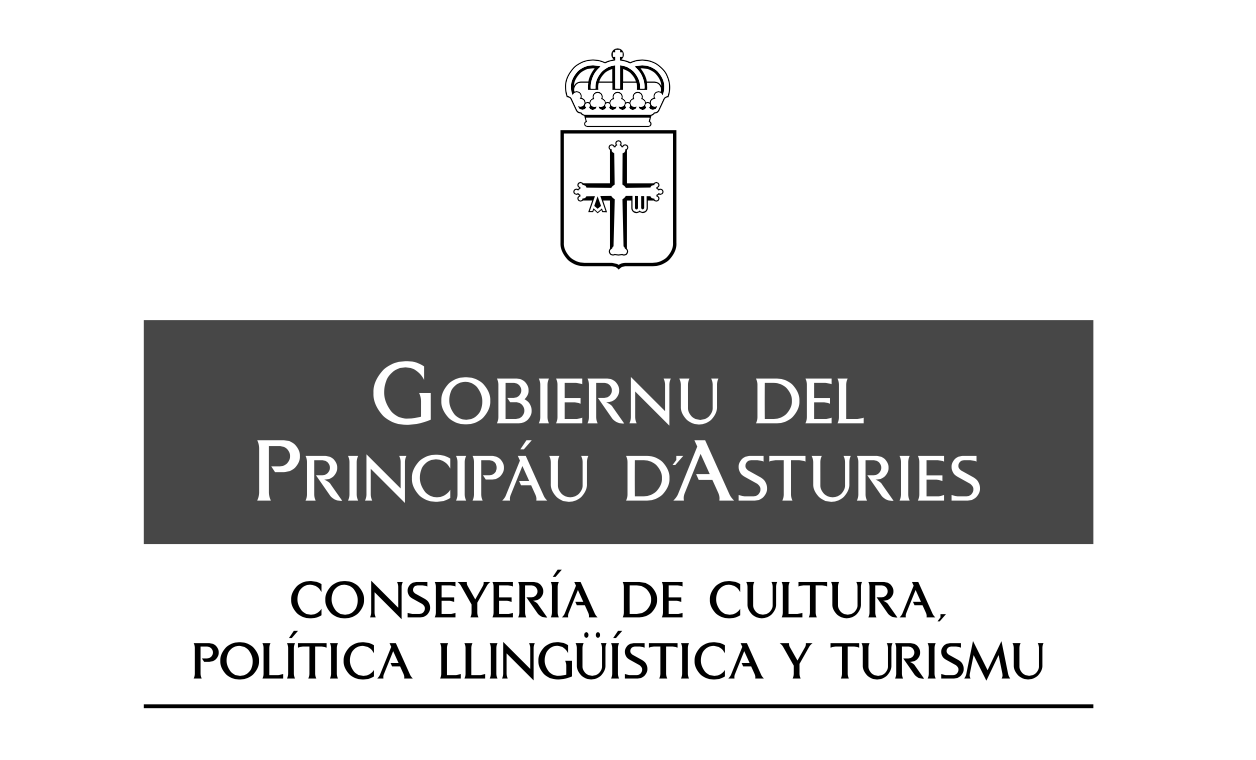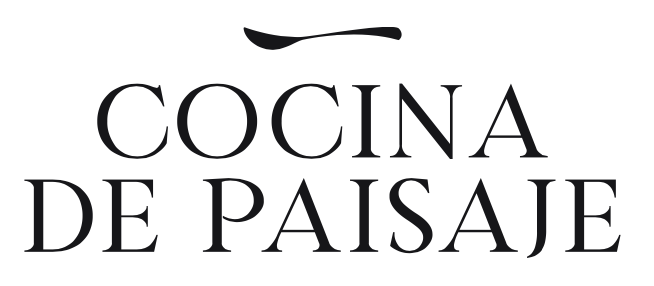News
"The recipes of the future will come from the recipes of the past”
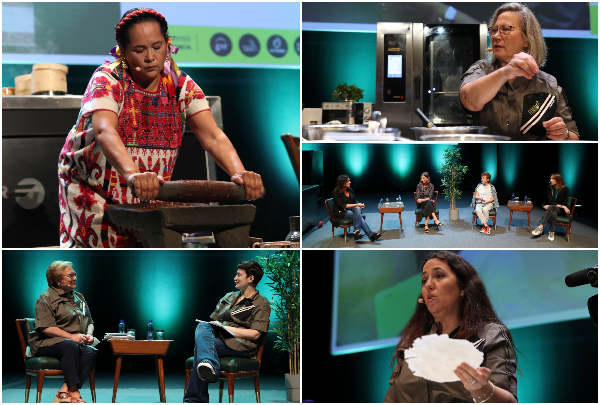
FéminAs kicks off with recognition "of all women who have cooked at some time", at a congress featuring the "Guisanderas" of Asturias and the "Cocineras Tradicionales de Oaxaca" Association in Oaxaca. The congress also supports the rural environment from a gastronomic perspective, a two-way future because "the future of gastronomy depends on local people”.
Acknowledgement of traditional cookery as the basis of gastronomy, appreciation of the rural environment, and defence of the "mandioca" as a crop that is the backbone of the community it generates were just a few of the issues addressed on the first day of the first International Congress of Gastronomy, Women and the Rural Milieu. All these issues point to the importance of women in their development, an aspect that is obvious in various locations, such as Asturias and its "guisanderas", Mexico and the "Cocineras Tradicionales de Oaxaca" Association, the women growing mandioca in Argentina, and popular family recipes in Portugal.
Amada Álvarez, Celia Florián, Narda Lepes and Justa Nobre were some of the leading protagonists of this first day of the FéminAs congress, inaugurated at the Universidad Laboral's theatre in Gijón by the Principality of Asturias' Secretary of Culture, Linguistic Policy and Tourism, Berta Piñán, alongside Benjamín Lana, chairman of Vocento's Gastronomy division. Gracián, accompanied by Vice-Secretary Graciela Blanco and the Mayor of Gijón, Ana González, talked of the chance to boost "the role of our 'guisanderas', who have been so involved in our culture, our tourism and our economy”. This is one of the objectives of the congress, "in addition to links by words and spoons, three of the most important issues of today's society: a viable future for rurality, necessary sustainability and the role of women. And we intend to define each of them with a look at Asturias. And, by way of a connection between them all, gastronomy as the explanatory vehicle”, said Benjamín Lana.
“For all the women who have fed us at some point in our lives”
The role of kitchens and traditional female chefs was the high point of the first day of the congress, featuring two of its leading world associations: Asturias' "Guisanderas Club" and the "Cocineras Tradicionales de Oaxaca" Association in Oaxaca (Mexico).
Both these associations wished to pay homage to “all the women who have fed us at some point in our lives”. This was made particularly clear by Celia Florián, president of Mexico's Traditional Female Chefs' Association, a body set up in 2015, which received the congress's 'Guardians of Tradition' Award for protection of the legacy of the best of Mexico's many and varied recipes". Florián and Charito Cruz, also a member of the association, brought Spain “a taste of what we are and what we support” with their in situ production of chocolate (with cocoa, cinnamon, sugar and ground almond), using a traditional "metate" method. “If you come to Oaxaca and you don't have a metate chocolate, it's like you haven't even been there”, they explained gaily.
Communion with traditional cuisine, with respect for women in the kitchen, "traditional cooking", the Mexicans explained, was followed by a talk by Amada Álvarez, president of Asturias' Stewmistresses' Club, "two twin entities”. The "Guisanderas" club emerged as an association - “but we had always been there”- in 1987 to "showcase the role of women in the kitchen and to recoup the historical culinary memory of Asturias in this case, although there are probably more "guisanderas" all around the country”, said Álvarez, adding that "the recipes of the future will come from the recipes of the past".
Mandioca, cooking in Tras-Os-Montes and the rural future of gastronomy
This first congress also featured Portuguese chef Justa Nobre (O Nobre, Lisbon), a huge cook and a huge supporter of cuisine in the province of Tras-os-Montes, and Argentinian Narda Lepes (Narda Comedor, Buenos Aires), screaming visibility to all the communities in the world that produce mandioca, “a super-foodstuff with a thousand names (yuca, aipim, guacamota, casabe, lumu …), with territory in poor rural areas, gathered by women”.
The talks ended with contributions by managers and maîtres Amaranta Rodríguez, from Culler de Pau; Marián Martínez, from Cenador de Amós, and Sandra Manzano, from Casa Marcial. All three dignified their floor profession, called for better pay, and staked a claim for rurality. All of them run operations in village, "and that means our suppliers are closer and we're reducing the carbon footprint, and boosting the experience of diners”, she said. Martínez was categorical: "The future of cooking depends on villages".
Italy, Mexico and Asturias in two unique cookery sessions
Monday saw a lunch at the Vista Alegre de Colunga restaurant, arranged by local chefs Ana María Merino and Cristina and Ana Collado, alongside the Italian Viviana Varese (Viva*, Milan, Italy), and the event ended with a dinner at which the female chefs at Asturias restaurants Casa Telva (Valdesoto, Asturias) and El Llar de Viri put on a six-hand show with Florián and Cruz from the Association of Traditional Oaxaca Chefs (Mexico), in an Asturias/Mexican confraternisation.
Tuesday - Leo Espinosa
FéminAs kicks off its second day with, among others, chef Leo Espinosa (Leo, Bogotá), Colombia's leading chef and one of Latin America's biggest stars. Not for nothing was she declared Latin America’s Best Female Chef in 2017.
Amada Álvarez, Celia Florián, Narda Lepes and Justa Nobre were some of the leading protagonists of this first day of the FéminAs congress, inaugurated at the Universidad Laboral's theatre in Gijón by the Principality of Asturias' Secretary of Culture, Linguistic Policy and Tourism, Berta Piñán, alongside Benjamín Lana, chairman of Vocento's Gastronomy division. Gracián, accompanied by Vice-Secretary Graciela Blanco and the Mayor of Gijón, Ana González, talked of the chance to boost "the role of our 'guisanderas', who have been so involved in our culture, our tourism and our economy”. This is one of the objectives of the congress, "in addition to links by words and spoons, three of the most important issues of today's society: a viable future for rurality, necessary sustainability and the role of women. And we intend to define each of them with a look at Asturias. And, by way of a connection between them all, gastronomy as the explanatory vehicle”, said Benjamín Lana.
“For all the women who have fed us at some point in our lives”
The role of kitchens and traditional female chefs was the high point of the first day of the congress, featuring two of its leading world associations: Asturias' "Guisanderas Club" and the "Cocineras Tradicionales de Oaxaca" Association in Oaxaca (Mexico).
Both these associations wished to pay homage to “all the women who have fed us at some point in our lives”. This was made particularly clear by Celia Florián, president of Mexico's Traditional Female Chefs' Association, a body set up in 2015, which received the congress's 'Guardians of Tradition' Award for protection of the legacy of the best of Mexico's many and varied recipes". Florián and Charito Cruz, also a member of the association, brought Spain “a taste of what we are and what we support” with their in situ production of chocolate (with cocoa, cinnamon, sugar and ground almond), using a traditional "metate" method. “If you come to Oaxaca and you don't have a metate chocolate, it's like you haven't even been there”, they explained gaily.
Communion with traditional cuisine, with respect for women in the kitchen, "traditional cooking", the Mexicans explained, was followed by a talk by Amada Álvarez, president of Asturias' Stewmistresses' Club, "two twin entities”. The "Guisanderas" club emerged as an association - “but we had always been there”- in 1987 to "showcase the role of women in the kitchen and to recoup the historical culinary memory of Asturias in this case, although there are probably more "guisanderas" all around the country”, said Álvarez, adding that "the recipes of the future will come from the recipes of the past".
Mandioca, cooking in Tras-Os-Montes and the rural future of gastronomy
This first congress also featured Portuguese chef Justa Nobre (O Nobre, Lisbon), a huge cook and a huge supporter of cuisine in the province of Tras-os-Montes, and Argentinian Narda Lepes (Narda Comedor, Buenos Aires), screaming visibility to all the communities in the world that produce mandioca, “a super-foodstuff with a thousand names (yuca, aipim, guacamota, casabe, lumu …), with territory in poor rural areas, gathered by women”.
The talks ended with contributions by managers and maîtres Amaranta Rodríguez, from Culler de Pau; Marián Martínez, from Cenador de Amós, and Sandra Manzano, from Casa Marcial. All three dignified their floor profession, called for better pay, and staked a claim for rurality. All of them run operations in village, "and that means our suppliers are closer and we're reducing the carbon footprint, and boosting the experience of diners”, she said. Martínez was categorical: "The future of cooking depends on villages".
Italy, Mexico and Asturias in two unique cookery sessions
Monday saw a lunch at the Vista Alegre de Colunga restaurant, arranged by local chefs Ana María Merino and Cristina and Ana Collado, alongside the Italian Viviana Varese (Viva*, Milan, Italy), and the event ended with a dinner at which the female chefs at Asturias restaurants Casa Telva (Valdesoto, Asturias) and El Llar de Viri put on a six-hand show with Florián and Cruz from the Association of Traditional Oaxaca Chefs (Mexico), in an Asturias/Mexican confraternisation.
Tuesday - Leo Espinosa
FéminAs kicks off its second day with, among others, chef Leo Espinosa (Leo, Bogotá), Colombia's leading chef and one of Latin America's biggest stars. Not for nothing was she declared Latin America’s Best Female Chef in 2017.

